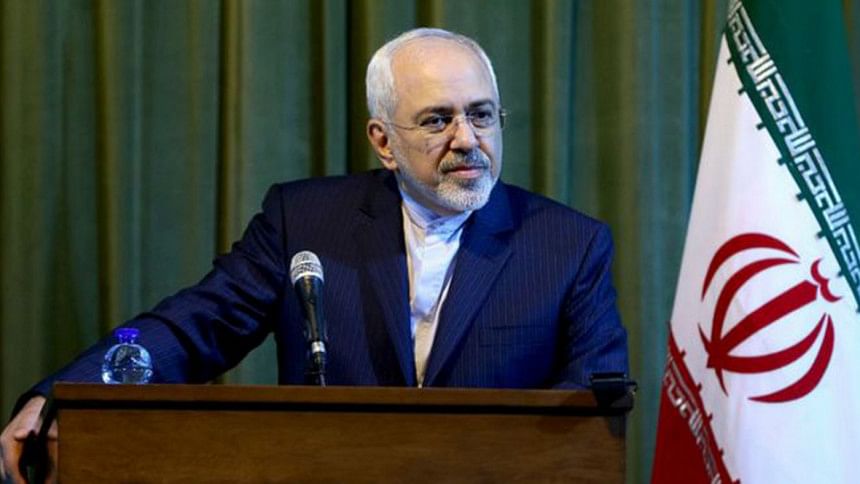Iran to join international Syria talks

Iranian Foreign Minister Mohammad Javad Zarif will attend multilateral talks on finding a political solution to the conflict in Syria in Vienna this week, a government spokeswoman has said.
It will be the first time Iran - an ally of President Bashar al-Assad - has attended such a summit with the US.
Representatives of Russia, Saudi Arabia and Turkey will also attend the talks.
Earlier, the US said an invitation had been extended to Iran - a move Syria's Western-backed opposition questioned.
The main round of talks is expected to take place on Friday, but diplomats say some preparatory meetings could happen on Thursday evening.
"We have reviewed the invitation, and it was decided that the foreign minister would attend the talks," Iranian foreign ministry spokeswoman Marzieh Afkham said.
Egypt and Iraq also confirmed they had accepted invitations to the meeting.
BBC diplomatic correspondent James Robbins says that while the US is certainly not welcoming Iran to the Syria talks, it will now tolerate Tehran's involvement.
Iran's Fars news agency said Zarif had discussed participation in the Vienna talks with Russian Foreign Minister Sergei Lavrov by phone on Tuesday.
Kremlin spokesman Dmitry Peskov later told reporters that Russia wanted a "widening of the dialogue" on Syria.
Iran is believed to have spent billions of dollars over the past four years propping up President Assad's government, providing military advisers and subsidising weapons.
However, Syria's political opposition has warned that Iran's involvement will only complicate the meeting in Vienna.
Both Iran and Russia - another ally of President Assad - have recently stepped up their military role in the Syrian conflict.
Iran has long acknowledged sending military advisers to Syria, but has denied the presence of any ground forces.
Despite that, unconfirmed reports earlier this month said that hundreds of Iranian troops had arrived in Syria.
They were reported to be joining government forces and fighters from the Lebanese Shia Islamist movement, Hezbollah, in assaults on rebel positions in northern and central Syria.
Russia began its military intervention in Syria at the end of last month, launching air strikes in support of President Assad.
Russia and Iran have insisted that Assad must be part of any transition government and that the Syrian people must be allowed to decide who governs them.
The US has indicated it could only tolerate President Assad during a short transition period, after which he should step down.
Why is there a war in Syria?
Anti-government protests developed into a civil war that, four years on, has ground to a stalemate, with the Assad government, Islamic State, an array of Syrian rebels and Kurdish fighters all holding territory.
Who is fighting whom?
Government forces concentrated in Damascus and the centre and west of Syria are fighting the jihadists of Islamic State and al-Nusra Front, as well as less numerous so-called "moderate" rebel groups, who are strongest in the north and east. These groups are also battling each other.
What's the human cost?
More than 250,000 Syrians have been killed and a million injured. Some 11 million others have been forced from their homes, of whom four million have fled abroad - including growing numbers who are making the dangerous journey to Europe.
How has the world reacted?
Iran, Russia and Lebanon's Hezbollah movement are propping up the Alawite-led Assad government, while Turkey, Saudi Arabia and Qatar back the more moderate Sunni-dominated opposition, along with the US, UK and France. Hezbollah and Iran are believed to have troops and officers on the ground, while a Western-led coalition and Russia are carrying out air strikes.

 For all latest news, follow The Daily Star's Google News channel.
For all latest news, follow The Daily Star's Google News channel. 



Comments